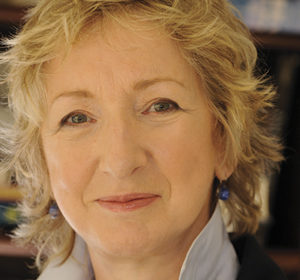As more and more talk turns to globalization, the Irish are in a unique position – in terms of the global context, we are already there. Whether it is running the world’s top rated hotel in Dubai, in the operating room of Memorial Sloan Kettering in New York, or running a telecom business in the Carribean – no matter where you turn you will find the Irish.
We have spread all over the globe. In proportion to population, Ireland has dispersed more emigrés than any other country in Europe. Today an estimated 70 million people of Irish descent are living around the world. The largest portion, some 40 million, are in the United States, but there are pockets of Irish in Argentina, Mexico, Australia, Canada, and increasingly in Asia.
We are global by virtue of a history that has flung us far and wide – but there is something else too, something migratory in our make-up. Our ancient ancestors traveled from afar to inhabit our small island – some say they came from Sicily by way of Greece, Cappadocia, Gothia and Spain – so perhaps there is something in the blood that makes our island people want to see the rest of the world.
While the present economic situation in Ireland means that the Irish are not forced to emigrate in the same numbers as before, there are still those who want to leave – perhaps not forever, but leaving the homeland for a few years after college is becoming a rite of passage for some, and the first step on a career path for others.
At Irish America’s Silicon Valley dinner honoring the Irish in technology last March, I met several young Irish men and women in the industry who had emigrated to Asia before ending up in California.
Which brings us to our cover story on Brendan McDonagh.
Brendan didn’t take the emigrant route as mapped out by earlier generations. He left Ireland in 1979, when the economy was still in the doldrums. (Many of the Irish who went to the States at that time ended up as undocumented workers; though educated, they were confined to the sidelines in terms of jobs. Few managed to make it into corporate America.) Instead of looking West as so many others did, McDonagh chose to look East. He went to work for the Hong Kong bank HSBC in Asia. His move to the East still resulted in his eventual move to America. Today he is the CEO of HSBC North America.
McDonagh, who lived in Japan, Hong Kong and Guam, as he ascended the corporate ladder, represents a new (or, perhaps in terms of our history not new but one rooted in tradition) phenomenon: the global Irish.
The Irish have an uncanny ability to get on wherever they go – perhaps it’s a skill honed over centuries of diaspora. Perhaps it’s some historic memory of oppression and poverty that allows us to identify with others, and to succeed, even in cultures that are traditionally suspicious of Westerners.
Meanwhile, the fact that more and more of our Wall Street 50 are Irish-born (33 percent of this year’s honorees) seems to indicate that American companies are realizing that they gain a competitive advantage in the global marketplace by enlisting more foreigners into their management ranks (note to Presidential candidates, it’s time to reopen the immigration debate), and the Irish with their ability to cross cultural divides are increasingly moving up the corporate ladder.
The connections that the Irish have made abroad are also important in terms of Ireland’s next stage of economic development. Irish universities have forged links with American universities, including the renowned Georgia Tech, which has placed its first applied research facility outside the United States in Ireland. The development of these special links is helping to position Ireland in its fight to lead the world in the area of technology convergence, and already many of the world’s most innovative companies in the life sciences and ICT sectors have located to Ireland.
Ireland has other advantages too. Following in the tradition of the emigrants helping those back home, many Irish-born CEOs on our list are on the advisory boards of Enterprise Ireland, and are helping Irish start-up companies reach the American market. But perhaps our greatest strength comes from our “social networking” abilities. For, much as they like to leave home, the Irish like to keep in touch. And with the increasing emphasis on globalization, what the Irish already have in place, thanks to the tradition of emigration, is a worldwide network.
Brendan McDonagh in an interview in this issue tells Niall O’Dowd about starting an Irish network in Japan. (What especially appealed to me about the story was how he and a group of young Irish turned a St. Patrick’s Day celebration in Kobe into a fundraising event for a local orphanage.)
The Irish are also skilled in using the latest technology to keep in touch with each other. On April 2, BioConnect Ireland linked its members in Ireland to their network colleagues in the U.S. (Biolink USA-Ireland) and the UK (Techlink UK-Ireland), via video and weblink to create a network of networks – from Chicago to Cork to Cambridge, the meeting charted the way of the future.
And so, as emerging markets – the crucial economic battleground of the coming decade – become more important, the Irish, with their global connections and understanding of other cultures, are eager and ready to play their part.


Leave a Reply